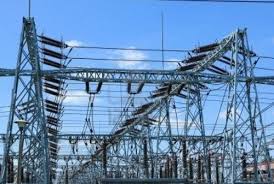Small business owners in various parts of the Federal Capital Territory (FCT), including Kubwa, Kuje, Gwagwalada, and Aco Estate, are crying out over poor electricity supply, saying it is killing their businesses and pushing many of them to shut down temporarily. The situation, according to residents, has worsened in recent weeks and is now affecting their ability to serve customers and make profits.
In Abuja on Wednesday, many business operators shared their frustrations, calling on the government and the Abuja Electricity Distribution Company (AEDC) to urgently address the power problems. They said they now depend mostly on generators, which has become very expensive due to the high cost of petrol.
Amanda Okoye, a fashion designer based in Kubwa, said she had been unable to deliver on customers’ orders due to a lack of electricity. “We have not had electricity for close to three days now. I have to depend on generators, and getting fuel to power them is too expensive. The pump price of petrol has gone up, and this is affecting my operations,” she said.
She explained that the power supply in her area had become so unreliable that she had decided to temporarily close her shop until there is some improvement. “The situation we face here is like living in darkness. My customers are complaining, and I cannot continue like this. I appeal to the government and AEDC to take urgent steps to improve power supply in Kubwa and surrounding areas,” she said.
Collins Osahon, a barber also based in Kubwa, echoed similar concerns. He said electricity is now only available for about two hours a day in his area, and the rest of the time he has to rely on a petrol-powered generator. Due to the high cost of fuel, he said he was forced to increase the price of haircuts.
“Power sometimes comes at night when people are asleep. During the day when we are supposed to do business, there is no light. Customers are no longer coming the way they used to, and this is not sustainable,” Mr Osahon said.
In Kuje, Amos Okoduwa, a welder, described the power supply in his area as highly unreliable. He said it was better some months ago but had deteriorated recently. “Welding work depends a lot on electricity. When there is no power, I can’t work. I’m now spending so much on fuel, and customers are not willing to pay more,” he said.
The situation is similar in Gwagwalada and Aco Estate, where small business owners say they are operating under severe pressure due to the poor state of electricity supply. Many said they have been forced to reduce their working hours or shut down temporarily.
The Abuja Electricity Distribution Company has come under criticism several times in the past over the same issue. Consumers are now calling on the Federal Government and regulators to hold the company accountable and make sure electricity distribution in Abuja and its environs improves.
With fuel prices rising and inflation affecting everything from food to rent, business owners say they cannot afford to keep spending huge amounts on petrol to power their operations. Some are even considering relocating their businesses to areas with better power supply.
Others are calling for stronger government investment in renewable energy solutions and better regulation of electricity distribution companies across Nigeria.
For now, many small and medium business owners in the capital are stuck with generators, struggling to survive under tough economic conditions and an erratic power supply that threatens to push them out of business entirely.
